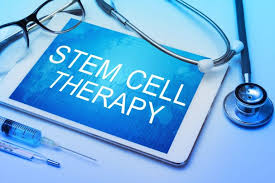Umbilical cord stem cell therapy stands as a beacon in the landscape of regenerative medicine, showcasing a spectrum of benefits that herald a new era in medical treatments. This therapy, leveraging the potent cells from the umbilical cord, embodies the convergence of innovation, hope, and healing.
Highly Potent and Versatile
Umbilical cord stem cells boast a youthful and robust profile, making them more potent and versatile than other types. They can differentiate into various cell types, thus providing a versatile tool for repairing damaged tissues and organs across different medical conditions.
Reduced Risk of Rejection
A standout advantage of umbilical cord stem cells is their lower risk of immune rejection. These cells are less likely to provoke an immune response, making them safer for transplantation and reducing the complexities and risks associated with stem cell therapies.
Ethical and Non-Invasive Collection
Procuring stem cells from the umbilical cord is non-invasive and ethically sound, sidestepping the controversies associated with embryonic stem cells. This collection method is harmless to the donor, offering a sustainable and ethical source for stem cell therapy.
Broad Therapeutic Potential
The therapeutic applications of umbilical cord stem cells are vast, from blood disorders like leukemia to potential treatments for neurological conditions, heart disease, and autoimmune diseases. Their capacity to modulate the immune system and regenerate damaged tissues marks a significant advancement in medical science.
Facilitating Personalized Medicine
Umbilical cord stem cell banking presents a unique opportunity for personalized medicine. It allows individuals to store their own stem cells for potential future medical needs. This “biological insurance” concept could revolutionize treatment plans, providing tailored and immediate access to regenerative resources.
In conclusion, umbilical cord stem cell therapy represents a pivotal shift in regenerative medicine, offering diverse and significant benefits. From its potent regenerative capabilities and lower rejection rates to ethical sourcing and potential for personalized treatment, this therapy is at the forefront of medical innovation, promising a future where healing is more effective, personalized, and accessible.





